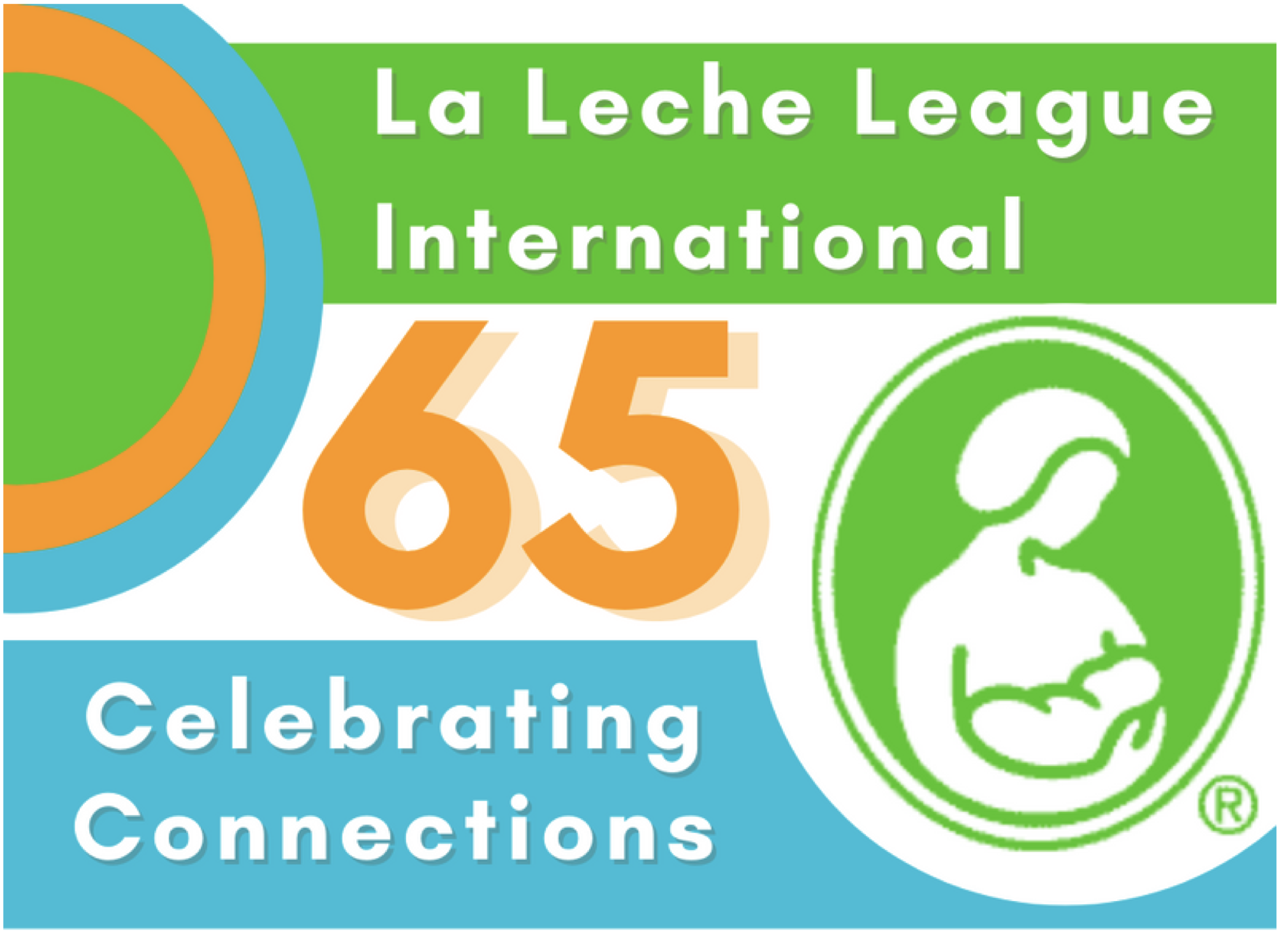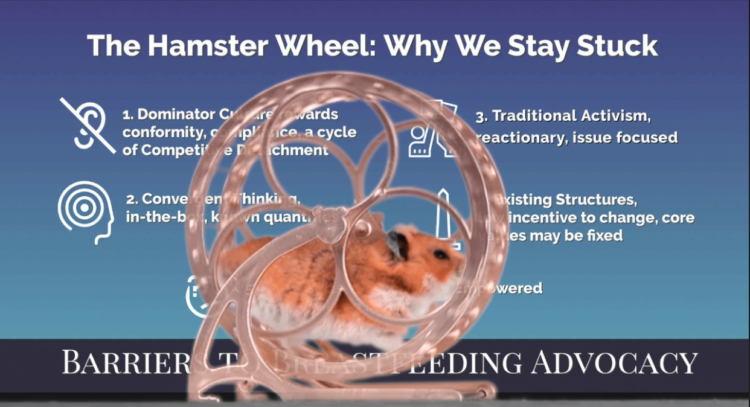Meet The Wayfinders: Nine Oral Histories Of Successful Breastfeeding Advocacy Barrier-Breakers
REGISTER FOR LA LECHE LEAGUE INTERNATIONAL’S 65TH ANNIVERSARY CONFERENCE
You may purchase a pass to the recorded conference presentations through April 2022.
The Meet the Wayfinders oral history collection of empowering, personal stories features video interviews with nine professionals, parents, and scientists who found ways around breastfeeding advocacy barriers, or just broke them! The series was created at the invitation of La Leche League International in celebration of their 65th Anniversary Conference held October 15-18, 2021. While the series was presented live in October 2021, the puble and conference attendees viewed the collection on LLLI’s website through April 2022.

The LLLI conference collection includes an overview video, where participants learn the five hallmarks of wayfinder advocacy, as well as view highlights of the nine interviews. Attendees will also receive a resource guide in PDF form to help find the many references discussed in the collection. The conference link to the collection also includes the nine full interviews, ranging in 15-30 minutes each.
In Meet the Wayfinders, conference participants will discover reasons why cultural change is difficult and how the breastfeeding advocates featured in this oral history collection were successful in breaking, transforming, and maneuvering around barriers in:
- The formula company “captured” biomedical field and colonization of populations worldwide: Cecilia Tomori, PhD, Director of Global Health and Community Health, Johns Hopkins University
- The siloed-science of academia and research which doesn’t (can’t) support a whole child wellness model: Darcia Narvaez, PhD, Professor of Psychology Emerita, University of Notre Dame; Founder, The Evolved Nest
- Hospital and medical professional culture’s systemic racism, Kimarie Bugg, DNP, FNP-BC, MPH, FAAN, IBCLC, Founder, Reaching Our Sisters Everywhere
- African-American and Indigenous peoples’ colonization created anti-breastfeeding bias, Kimarie Bugg, DNP, Founder, Reaching Our Sisters Everywhere; Wesley Bugg, JD, Reaching Our Brothers Everywhere; and Jasha Lyons Echo-Hawk, Indigenous Milk Medicine Week and Indigenous Milk Medicine Collective, Co-Founder
- Mainstream media cultural bias, Jamie Grumet, TIME cover breastfeeding mother from May 2012
- Workplace and gender equity laws, Joan C. Williams, JD, Founder, Center for Worklife Law, University of California at Hastings
- Inclusion of fathers in breastfeeding and birth advocacy, Wesley Bugg, JD, Reaching Our Brothers Everywhere
- Creating support for families, Patty Kornwolf, RN-C, Kindred World Founding Director
- Performance Arts, using arts for internal and external barrier-breaking, Cathleen O’Malley, playwright, MilkDrunk
In this series, the viewer will discover the hallmarks of successful barrier-breaking shared by the wayfinders who answer three questions:
- When were they first exposed to breastfeeding?
- Were they surprised to discover barriers to breastfeeding, particularly in their field?
- And how have they overcome, transformed, or moved beyond these barriers?
Through their personal histories, the wayfinders reveal to us a holistic form of breastfeeding advocacy, a strategy that does not wait for external, cultural forces to change and support individual and collective wellness.
All of our presenters address the opportunities awaiting us in our post-pandemic world and how, with an understanding of the hallmarks of successful barrier-breaking, we too, can answer the call to become a wayfinder, to introduce and integrate a new way forward right where we stand as individuals, and to joyfully gather to build a breastfeeding-friendly culture.
In The Meet The Wayfinder Series You Will Learn:

How Can Social Changemaking Become Hamster Wheel Activism?
In a moment, we will meet our Wayfinders, but first, let’s take a look at a few reasons cultural change can be difficult, and why it is easy to stay in a hamster wheel as advocates. We’ll then see how the wayfinders do things differently.
What keeps us in a hamster wheel of advocacy, feeling like we’re running, moving and shaking, but then not getting anywhere?
First, our modern Dominator Culture’s prominent feature, as Darcia Narvaez shows us, is a Cycle of Competitive Detachment. Our current culture does not value listening, relational skills, or inner awareness which are necessary to support and appreciate diversity, inclusion, sustainable living, or a whole child wellness model.
Second, our current culture values Convergent Thinking, only working with known quantities that keep us moving inside of known power structures continuing unsustainable ways of living and patterns of systemic oppression.
Third, our responses to these external forces through traditional activism are reactionary, meaning, we wait until a problem IS overwhelming our senses, time, and energies to acknowledge it, and then we protest, march, and express our outrage in social media campaigns. This sort of traditional activism has its place, but it is now how real change is made, according to our wayfinders’ stories.
Fourth, Existing institutional structures are usually too compromised, conflicted, and insular to fully embody new values and visions. Parallel structures are needed for this purpose.
And fifth, because our current culture expects for conformity, in-the-box thinking, and traditional reactionary after the fact activism, there is nothing new to integrate into the old way of being, thinking, and existing culturally.
This way of being, of waiting for the external forces to change and support individual and collective wellness, is no longer necessary. How did our wayfinders create change?
What Are Some of the Hallmarks of Successful Barrier-Breaking?
Where do most of our wayfinders begin? They begin by listening to inner guidance that questions and reenvisions the environment of their day to day lives. Cecilia Tomori questions her doctor’s advice on infant sleep and her questioning leads her, as she shares in her story, from zero understanding of breastfeeding to becoming a breastfeeding expert.
When we follow a call to investigate and create a different reality for ourselves and others, this process is called Following, or Answering the Call, and is recognized as the beginning of a Hero’s Journey, a point of departure to a personal transformation in perception and awareness
The second hallmark is Divergent Thinking. Divergent thinking calls upon our capacity to think outside the box, to use our imaginations, and to see the big picture. Its counter point, Convergent Thinking, stays within known quantities, and is in alignment with most our Western values of conformity to avoid shaming, judgement, and devaluation.
The third hallmark is Kindred Activism. This theory of activism involves centering the needs of children in social justice work, while valuing the inner skills of mindfulness and outer skills of relational activism. Kindred Activism is being developed and explored through Kindred World human development scholars and has been feature in the past year in posts at Rutgers University’s Childism Institute and Riane Eisler’s Center for Partnership Studies.
The fourth hallmark of successful barrier breaking is the creation of a Parallel Structure, or an organizational structure that supports the embodiment of the values and vision of wayfinders who are following the call to create a new reality alongside the old reality and its structures. Examples of these parallel structures are La Leche League International, Attachment Parenting International, Reaching Our Sisters Everywhere, and Reaching Our Brothers Everywhere.
And finally, listen for how the new insight, communities, and vision are strategically Integrated into openings in the old reality, ideas, and structures. Sometimes in creative ways, like Darcia Narvaez’s new short film, Breaking the Cycle, which features forty years of integrated, siloed fields of science into a six-minute video. Or Cathleen O’Malley’s play, MilkDrunk, which addresses both her internal and external struggles with breastfeeding barriers.
All of our presenters address the opportunities awaiting us in our post-pandemic world, and how, with an understanding of the hallmarks of successful barrier breaking, we can be ready to introduce and integrate a new way forward.
Thank you, La Leche League International, for the invitation to produce this oral history collection in celebration of your 65th Anniversary Conference!


